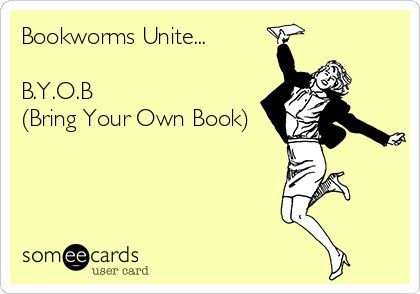Do you ever have imaginary conversations with yourself? I found that I was doing that just now. I was explaining to myself how I can read 200-300+ books a year. As is so often the case, this came about completely randomly. I scrolled past this Instagram post:
View this post on Instagram
And I thought, yep, there’s me the speed reader. But then I remembered passing this tweet a week or so earlier and thought, no that doesn’t really describe me:
Read this slowly…#SpeedReading pic.twitter.com/2JfNHYQgN7
— Kush Sareen (@Ksareen30) January 13, 2022
Because I read fast, like really fast, but I can also tell you what color shirt Character A was wearing in chapter 11 and pick out underlying themes and tropes, etc. So, I’m obviously processing what I reading.
Someone on Goodreads once commented in a conversation “Wow, you’re a fast reader!” And then later complemented me with, “you assess the quality of books cogently and thoughtfully, and you have a very real, unaffected style of expressing yourself.”
 Now, I’ll preen under that praise in general (even if it was quite a while ago). But the point of including it here is the assessing the quality of books cogently and thoughtfully. I think I do that, but at a volume of 200-300 books a year. Admittedly, I don’t give every book an equally in-depth and deeply thought out review. But I am reading each book thoroughly enough to understand them on a fairly complete level and I do it very quickly.
Now, I’ll preen under that praise in general (even if it was quite a while ago). But the point of including it here is the assessing the quality of books cogently and thoughtfully. I think I do that, but at a volume of 200-300 books a year. Admittedly, I don’t give every book an equally in-depth and deeply thought out review. But I am reading each book thoroughly enough to understand them on a fairly complete level and I do it very quickly.
The question I was pondering today was how. And I think I have an answer. Though I’m no neurologist (or whichever -ologist would specialize in this field), so what I think is happening in my brain may be way off base. And even if I’m right, there are probably far better, more accurate ways to describe it. But I’m going to try and describe it.
All credit where credit is due, my feet were put on this path by my husband. Earlier this year (maybe late last year, time has no meaning anymore) I was grumbling to myself and him. I’d been filling out an online form and done it wrong, which I do as often as not. And I said something along the lines of, “I swear I didn’t used to be so bad at this. I have two Masters degrees for Christ’s sake. Surely I’m able to read a stupid form.” Very calmly, he said, “It’s because you don’t read.”
I blinked at him and went, “WTH, 300+ books a year says otherwise!” Now, I can’t remember every sentence that was exchanged, but the gist of what he said he’d observed me doing was that I don’t read a sentence by reading each word in that sentence (or instructions on a form). He was of the opinion that I read some of the words, maybe every third, and my brain simply fills in the rest—that I’m very good at extrapolating and filling in blanks. Predictably, I was incensed and responded, “I don’t do that!”
But as I paid attention over that next few days, I found that I kind of do do that. Maybe not that exactly, but some version of it. It explains why I can tell you what color shirt Character A is wearing in chapter 11, but 10 minutes after I finish a book I often can’t tell you the main character’s name. Because I don’t read “Sarah wore red.” My brain just filled in my mental place holder of Sarah and red.” I’m not wholly visual. So, I’m not claiming to have a full cinematic picture in my head, but that my brain gleans the information without acknowledging the letters making up words. Does that make sense?
And this even kind of makes sense when I think about being a child learning to read. I had a very, very hard time learning to read. I got pulled out of normal class for remedial reading lessons at school, my grandma bought me Hooked on Phonics (anyone remember those), my mom worked with me everyday after school. I really really struggled to read. And this lasted long enough and I was old enough that I actually remember the visceral feeling of it all finally snapping into focus and understanding at last.
I call it my Helen Keller moment. Certainly, it’s not as dramatic as someone who was blind and deaf finally making a connection with words and meaning.
But it is a stark and true moment in my mind. In my imagination, something physically snapped into place and I understood something that hadn’t seconds before. And after it did, within the same school year, I was moved from the remedial lessons to the advanced.
When I discuss those early years with my mom, she laughs and says, “Lord, you were as dyslexic as the day is long.” Now, I don’t think there really is any such thing as “were dyslexic.” I’m fairly sure you either are or you aren’t and it’s a constant. I think what she’s getting at is that whatever normal pathway a child’s brain forms when learning to read, mine just couldn’t. There was an impediment of some sort. I imagine a road that normally follows a straight line, but in my case had to curve around a bolder. It took longer because it had to find and forge a new way. And because of that, the scenery is also a little different than other people’s. My ‘reading’ doesn’t work exactly like other people’s ‘reading.’ When my brain couldn’t make it work the ‘right’ way, it found an alternative way.
This is where an -ology would come in handy. I have no idea if that’s accurate. But it’s how I imagine it. And if the way my mind found was to read the parts of a sentence that make sense and fill the rest in (and to have gotten really good and accurate at it over time), well that makes sense to me too. As does being fast because it’s not reading/processing each individual word. And predictably, it works a lot better with fiction than forms.
None of this is something I do purposefully. It’s just how I read. I don’t know any other way to do it. I literally don’t know how to slow down.
So, there’s my totally random, possibly ill-conceived rambling post for today. Enjoy.
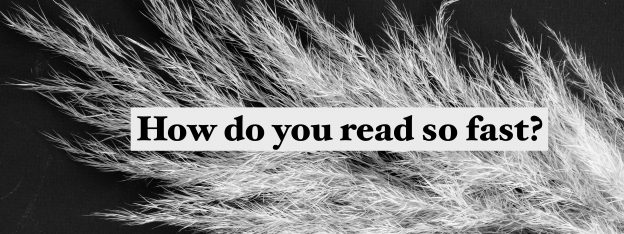

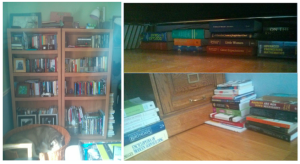
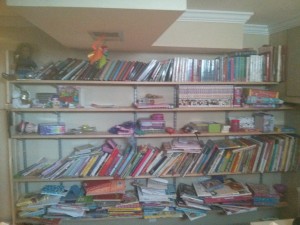
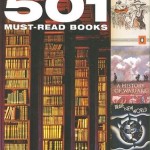 Must-Read Books
Must-Read Books
